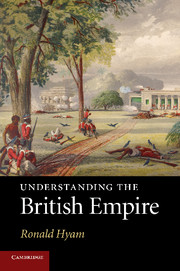Book contents
- Frontmatter
- Contents
- List of plates
- List of figures
- List of maps
- List of tables
- Preface
- Acknowledgements
- List of abbreviations
- Introduction: perspectives, policies, and people
- I Dynamics: geopolitics and economics
- II Ethics and religion
- III Bureaucracy and policy-making
- 7 Bureaucracy and trusteeship in the colonial empire
- 8 Africa and the Labour government, 1945–1951
- 9 John Bennett and the end of empire
- IV Great men
- V Sexuality
- VI Imperial historians
- Published writings of RH on imperial history
- Index
9 - John Bennett and the end of empire
Published online by Cambridge University Press: 05 August 2012
- Frontmatter
- Contents
- List of plates
- List of figures
- List of maps
- List of tables
- Preface
- Acknowledgements
- List of abbreviations
- Introduction: perspectives, policies, and people
- I Dynamics: geopolitics and economics
- II Ethics and religion
- III Bureaucracy and policy-making
- 7 Bureaucracy and trusteeship in the colonial empire
- 8 Africa and the Labour government, 1945–1951
- 9 John Bennett and the end of empire
- IV Great men
- V Sexuality
- VI Imperial historians
- Published writings of RH on imperial history
- Index
Summary
[Not previously published. Written in 2006.
Although this chapter is a by-product of many years' research at the National Archives, it could not have been written without the help of John Bennett's family: his widow, the late Mrs Mary Bennett, his brother, the late Dr Ralph Bennett, and his nephew, Mr Francis Bennett, to all of whom I am most grateful. I must stress, however, that my views are not necessarily their views.
This chapter is mainly about official policy-formation, but class-based attitudes within the administrative elite emerge as a sub-theme. How significant is this?]
In 1947, as imperial attention swung away from newly independent India to the tropical colonies of Africa and elsewhere, insiders in the Colonial Office would have had no difficulty in identifying the high-flyers who could be expected to be the leading advisers for what proved to be the evolving process of decolonisation. They were Andrew Cohen and John Bennett. But while Cohen is a familiar name to all students of empire – possibly the best-known Colonial Office civil servant since Sir James Stephen in the early nineteenth century – Bennett has dropped out of view for all but a handful of archival researchers who gratefully disinter his incisive minutes. A John Bennett Memorial Lecture on the Middle East is delivered biennially in the University of Cambridge Faculty of Asian and Middle Eastern Studies, but it is safe to assume that most of those attending do not know who John Bennett was.
- Type
- Chapter
- Information
- Understanding the British Empire , pp. 268 - 296Publisher: Cambridge University PressPrint publication year: 2010

